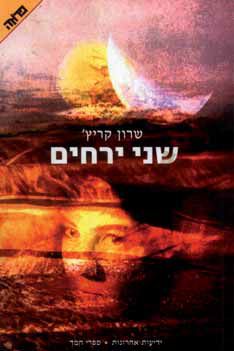
As English-speaking parents of Hebrew-speaking children, we often find ourselves in a bit of a dilemma regarding the books we "should" be recommending to our children. How can we say anything about books that we ourselves have difficulty reading? How can we best share with our children the books we loved when we were kids? Read aloud in their original English versions? Hope their English is good enough so that they can read the books themselves? Look for Hebrew translations? How can we really tell if the translations are faithful to the quality of the originals? When a few translations are available, how can we judge which is the best?
Over the years, many classics of children's literature have been published in Hebrew in a number of different versions and translations, both abridged and unabridged (sometimes including pictures from movie versions) such as The Secret Garden, Alice in Wonderland, Tom Sawyer, Robinson Crusoe, Pippi Longstocking, and Little Women.
But what about translations of books written more recently, i.e. in the last ten or fifteen years? More recent children's/young adult’s titles which have come out in Hebrew include the Newberry award winning Holes (a book about a boy unjustly sent to Camp Greenlake, where the boys are forced to spend every day digging holes in the hot sun) and Walk Two Moons (about a teenager who takes a trip with her grandparents to look for her missing mother). Other current books include Because of Winn Dixie (the story of a ten year old girl and the dog she finds in the supermarket), Ella Enchanted (a brilliant re-telling of the Cinderella story) and Ann Brashares' The Sisterhood of the Traveling Pants (which has become a type of teenage "cult novel" in the States).
One recently published book that, thankfully, has found its way into the Hebrew language is Tim Wynne-Jones' Ned Mouse Breaks Away (published in Hebrew as HaBricha HaNoezet shel Ned Achbar), a very small book on some very large subjects. Here, the saga of Ned Mouse, imprisoned for life for writing slogans against the government in his bowl of spinach, is recounted. Ned tries to escape in various ways: digging a hole with his teaspoon only to end up inside the prison warden's tiramisu, building a tin plane in shop class, hiding in a vacuum cleaner after writing a fictitious note directing the jail keeper to take it to the warden's house and dressing up as the prison washerwoman (inspired by The Wind in the Willows which he finds in the prison library). In the end Ned comes up with a breathtakingly original plan of escape, guaranteed to spellbind children (while possibly causing a few eyebrows to raise among parents and educators).
Ned Mouse contains such thought-provoking lines as "And that made the keeper sad. And his sadness caused him to think", an activity which is not part of his regular job. "Keep" realizes that he has begun to feel love for Ned, as he has never met anybody "with so much life in him". He begins to wonder if Ned is right in his assertion that he was imprisoned unfairly and that perhaps (to quote a mouse), "This jail is a huge waste of time and money when there are only a few really bad people in it." From sadness to thought, from thinking to love, from love to questions of moral judgment. All in a single page of very simple writing.
The plot of Ned Mouse Breaks Away twists and turns, flip-flopping back and forth while raising some rather big questions: What is the nature of freedom? What are the rights and limits of protest? What is the meaning of friendship? Can people change? Is punishment always the answer?
However, heavy questions aside, Ned Mouse is first and foremost an enjoyable story for children and a very humorous and entertaining one at that. Although the book is part of Keter's Reshit Kri'a (early reading) series, in my opinion it can be read and appreciated from age eight onwards (with no upper age-limit necessary). Whether read in Hebrew or in English this book can defy even the most reluctant reader.
While Ned is not alone in appearing as a hero (or anti-hero) in two languages, it must be said that the trend lately in Israeli children's publishing has been to move away from translated books in favor of original Israeli writing. That said, we can be comforted by the knowledge that, over the years, much has been done in Israel to ensure that good translations of children's books reach an Israeli audience, both from English and other languages. For many years the Marganit series published Hebrew translations of many children's/young adults’ books that we grew up with, including the Narnia series (seven books in all), Charlie and the Chocolate Factory, Mr. God, This is Anna and seven books by the Swedish author Astrid Lindgren.
In addition, nearly all of Judy Blume's books have been translated into Hebrew, including the Fudge series (called "Pashosh" in Hebrew), the early groundbreaker Are you there, God? It's Me, Margaret, and Deenie (about a girl, pushed by her mother to become a model, who then develops scoliosis). Readers may also be pleased to know that many of Beverly Cleary's books have been translated, including Henry Huggins, the Ramona books and Dear Mr. Henshaw.
In short, even though translations of children's books are becoming fewer and farther between, we can be happy that our libraries and bookstores still do offer a myriad of books translated from a number of different languages, including fine translations of the books we knew and loved in our "previous lives".
Ilene Moskowitz, originally from Detroit, Michigan, is a member of Kibbutz Samar in the southern Arava. She works as a children's/young adult librarian in the Ma'aleh Shacharut regional school.
 A “Virtual” tour of Ethiopia
A “Virtual” tour of Ethiopia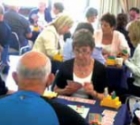 ESRA Herzliya’s Annual Bridge Morning
ESRA Herzliya’s Annual Bridge Morning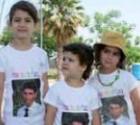 Walking for Benji
Walking for Benji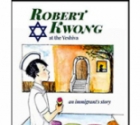 Robert Kwong at the Yeshiva
Robert Kwong at the Yeshiva 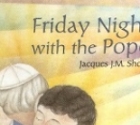 Friday Night with the Pope - A Book Review
Friday Night with the Pope - A Book Review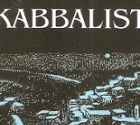 The Kabbalist - A Book Review
The Kabbalist - A Book Review